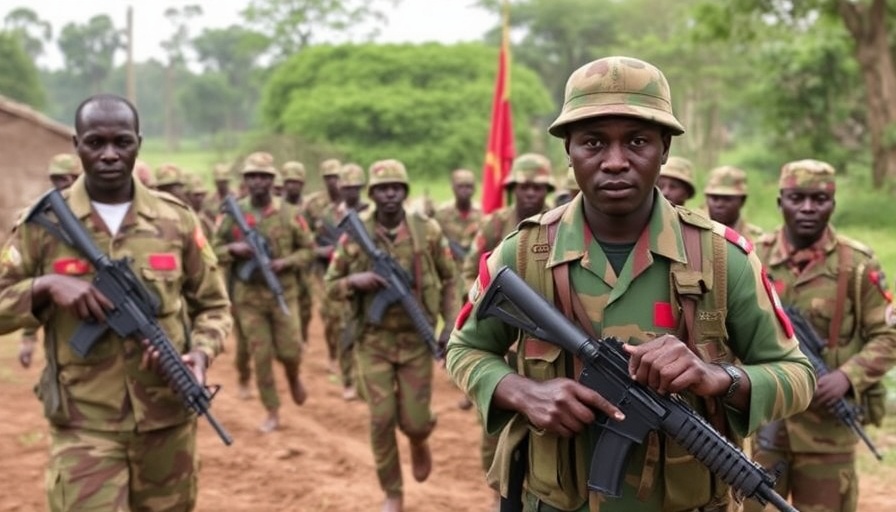
DR Congo's Shift Towards Peace Talks with M23 Rebels: An Analysis
The Democratic Republic of Congo (DRC) has recently announced its willingness to engage in direct dialogue with the M23 rebels, marking a significant shift in its previously non-negotiable stance toward the group. Congolese Foreign Affairs Minister Thérèse Kayikwamba Wagner emphasized the need to adapt to the evolving realities of the ongoing conflict, particularly as Southern African Development Community (SAMIDRC) forces exit the country after facing substantial losses.
Wagner stated, "We are following the logic of the evolution of the conflict... it is more appropriate for us to engage in direct discussion with the M23, if this leads to a cessation of hostility and violence against our civilian populations." This acknowledgment of dialogue aligns with a broader pattern seen across Africa where nations reassess their conflict engagement strategies in light of ongoing violence and instability.
A Changing Landscape: Why Dialogue Matters Now
The M23 group, which has recently regained a strategic foothold in North Kivu by capturing key cities such as Goma and Bukavu, announced its withdrawal from certain areas as an olive branch to facilitate peace talks.
Spokesman Lawrence Kanyuka reiterated the group’s commitment to a peaceful resolution, suggesting that this move may create an environment conducive to addressing the underlying causes of conflict. Such developments hold promise for both the DRC and regional stability, highlighting a potential for reconciliation amidst the chaos.
Future Predictions: Implications for DRC and Its Neighbors
The decision by DRC to initiate dialogue raises significant questions about the future landscape of East African politics. As Rwanda, accused of backing the M23, met with DRC leaders in Doha to discuss ceasefire terms, observers are left to ponder whether this newfound willingness to engage could pave the way for genuine regional cooperation or simply serve as a temporary distraction.
Should these dialogues bear fruit, they could signify a shift not only for the DRC but for regional alliances and geopolitics, potentially affecting global trade dynamics involving Africa. Investors and policymakers need to keep a close eye on how this unfolds and consider the implications for foreign relations and the African economy.
Understanding the Local and Global Impact
With adverse socio-economic conditions exacerbated by protracted conflict, dialogues such as these may furnish pathways to stability. The integration of peace talks into the DRC's policy framework could enhance international partnerships aimed at fostering economic resilience and governance reforms.
In this context, the role of global stakeholders—whether they be from the African Union or other international platforms—will be pivotal in ensuring that peace efforts are sustained and effectively implemented.
Final Thoughts
The DRC’s willingness to engage with the M23 rebel group reflects a critical juncture in its socio-political landscape. A successful outcome could signal a new era of governance and civil order, vital for the stability of the region and the continent's overall trajectory.
As developments continue, business leaders, investors, and policymakers are encouraged to stay informed about these shifting dynamics and consider the potential influences on Africa’s economic future.
 Add Row
Add Row  Add
Add 


 Add Row
Add Row  Add
Add 

Write A Comment